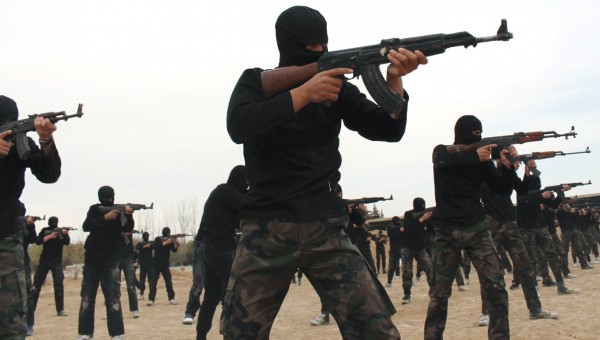
The powerful Syrian Islamist insurgent group Ahrar al-Sham has merged with a smaller jihadist faction in a move that could thwart the growing influence of al Qaeda’s offshoot in northwestern Syria, jihadists sources said.
Ahrar al-Sham, one of the largest jihadist groups in Syria alongside Islamic State and Nusra, announced on Sunday a merger with the smaller Suqur al-Sham, which shares its strongly Islamist line.
A statement said the merger was prompted by a need to unify ranks in what some rebels say will expand Ahrar al-Sham’s clout in the northwestern province of Idlib, where its rival Nusra has expanded since recently crushing Western-backed non-jihadist rebel groups.
“This will present a stronger competitor for Nusra in Idlib. With other mergers they could get closer to…equal footing,” Abu Malek al Shami, a local rebel commander from Jaish al-Mujahdeen wal Ansar told Reuters on viber.
FACTIONAL FIGHTING
Jihadist groups have been engaged in internecine fighting since the rise of the ultra-hardline Islamic State militants that have sought to subjugate rival groupings.
“All these factions are not entering a phase of cooperation but one of imposing their presence by force,” Abu Haniyah said.
The factionalism has helped Syrian President Bashar al-Assad’s army gain ground against his opponents and inch closer to encircling them in rebel held parts of the northern city of Aleppo.
Ahrar al-Sham draws most of its leaders and rank and file from local Syrians in contrast to Nusra, the local franchise of al Qaeda, which has many foreign jihadists.
A blast last September killed the leader and most commanders of the group that is also part of the Saudi-backed Islamic Front alliance. That has been in armed conflict with the militant Islamic State group which has seized swathes of territory in Syria and Iraq.
Ahrar al-Sham, which is widely believed to have received funding from Gulf states and has at least 10,000 fighters, aims to implement Sharia law in Syria.
It was at one point considered the strongest insurgent group in the civil war.
A jihadist scholar said the drying up of foreign funding and the impact of the loss of its leaders was prompting a rethink towards mergers with other brigades.
“The regional financing it used to get has weakened and the loss of its leaders has brought this new alignment driven not by ideology but on strengthening its internal structure,” said Hassan Abu Haniyah, a prominent Jordanian jihadist scholar, who closely follows radical fundamentalist movements.
Reuters

Leave a Reply
You must be logged in to post a comment.